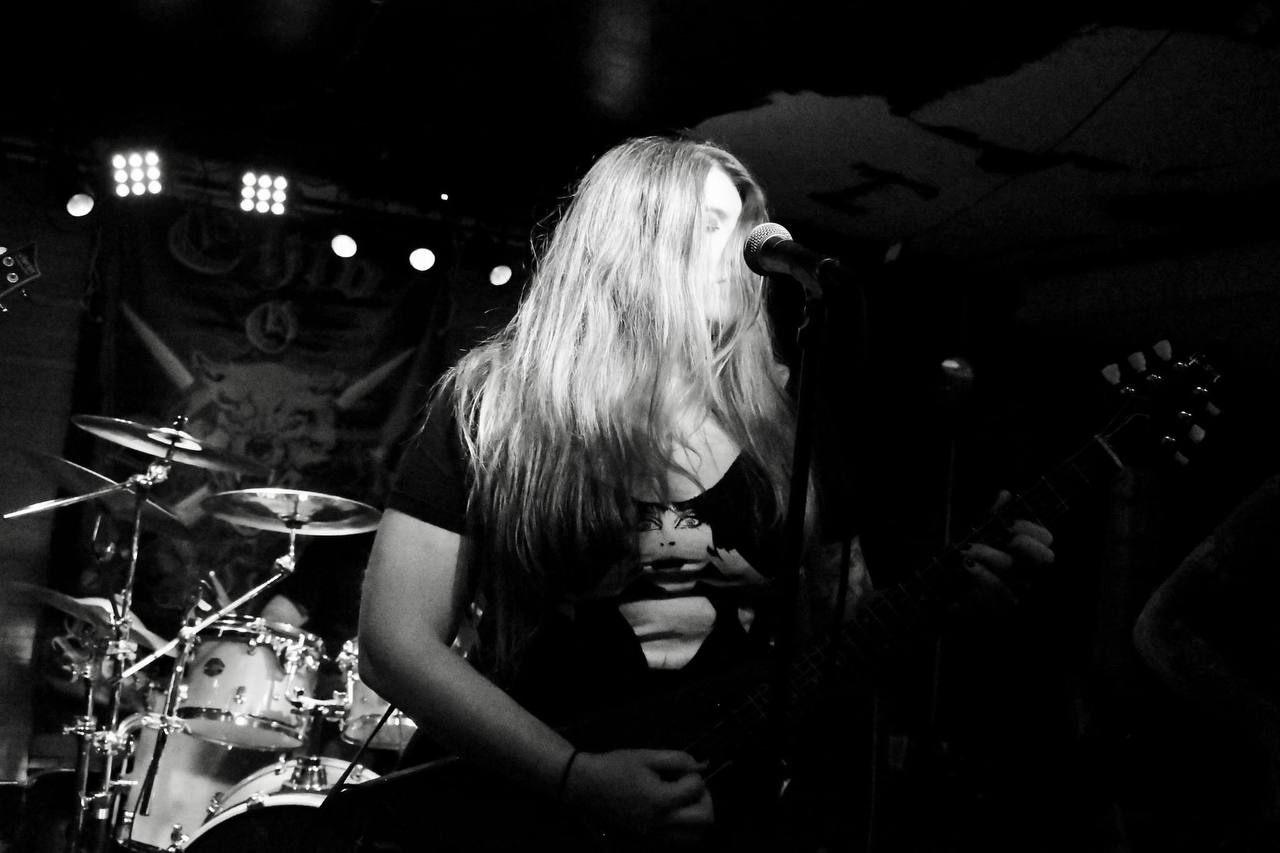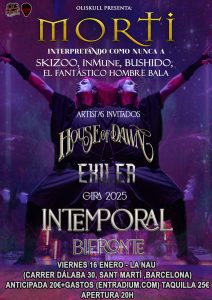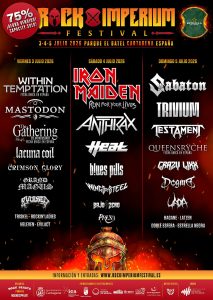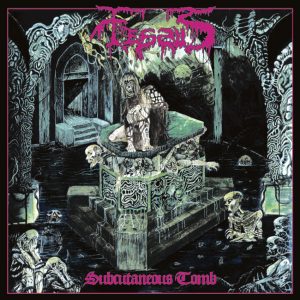AVOWAL: Myths, Metal, and Defiance: A Reckoning Through Sound
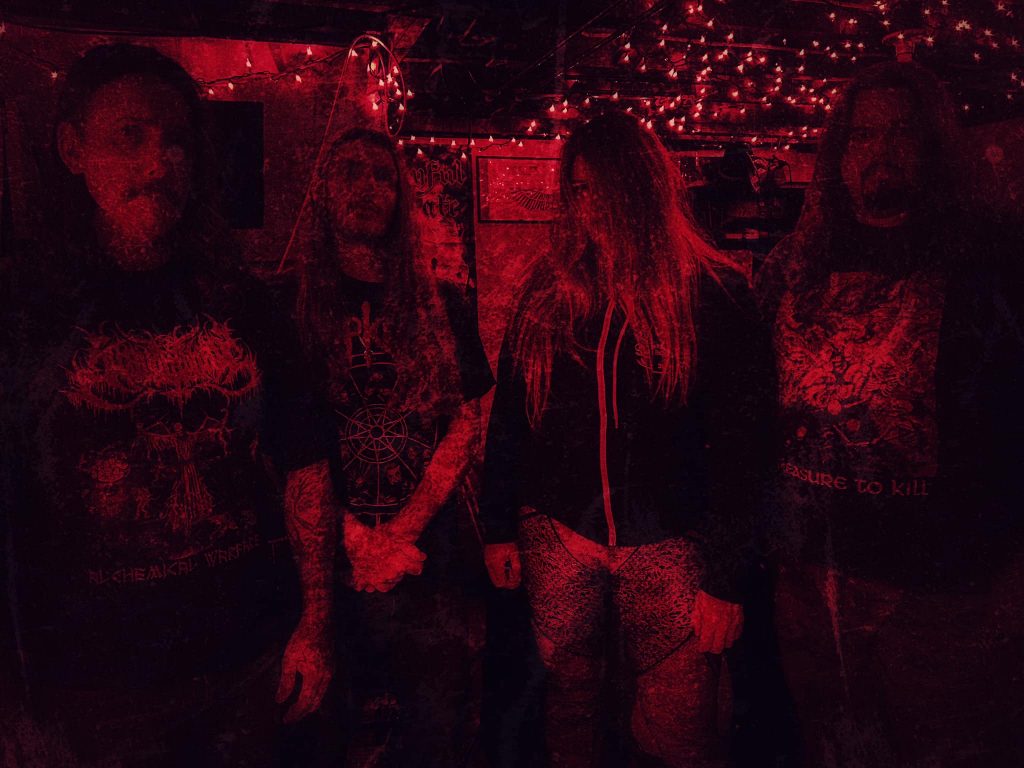
In this candid conversation with Elyse of Avowal, we dive deep into the band’s raw, unapologetic blend of punk, thrash, and death metal—a sonic landscape designed to challenge, provoke, and empower. Elyse opens up about the inspirations behind their latest EP, Lessons in Technical Difficulties, where themes of retribution and moral conflict collide with contemporary struggles in the music industry and beyond. From reimagining Greek mythology as a feminist allegory to dissecting the harsh realities of the underground music scene, Avowal’s journey is one of resilience and confrontation.
The interview also touches on their creative process, the interplay between mythology and modernity, and how their sound serves as both catharsis and critique. Elyse’s insights offer a stirring perspective on the balancing act of artistry and survival, leaving no stone unturned in the fight against neutrality, oppression, and the erasure of independent art. Prepare for a conversation as fierce and layered as the music itself.
-Hi, first off thanks for taking your time. How’s everything doing in the lair of Avowal?
Hello and thank you for reaching out to us. Everything is going pretty well over here! We are getting ready to record the next album and just chilling out and writing some new material.
– «Lessons in Technical Difficulties» is a compelling title—technical issues often symbolize broader challenges. How does this title reflect not just the struggles of creating music but also personal or societal obstacles that resonate with the band?
For us, the title was derived from our DIY summer tour. Between different venues, promoters, and sound people… you never know what you’ll get. Broader than that, like many musicians, we all work full-time jobs and find that creativity must be packed in little pockets of free time. I think a lot of artists struggle to find a balance between creating new art, practicing, playing shows, and meeting all the demands of life.
In addition, the independent venues that support the underground music scenes are failing. I’ve watched so many great spaces in Northeast Ohio go under over the years, and it’s devastating. My friends in other states have experienced the same in their scenes, and while I don’t have the answers to solve the problem, I fear the future of underground, working-class artists. It seems like more people enjoy the festival experience because they can carve out a weekend, see a bunch of bands they want to see, and go back to the grind. I believe that will continue to pose challenges for underground artists and small business owners.
Combine that with the fate of independent labels as physical media sales continue to decline and streaming platforms rake in billions while refusing to pay fair wages to artists for their art—musicians are going to have to continue to navigate obstacles much more significant than themselves.
– The technicality and energy in Lessons in Technical Difficulties stand out. What challenges did you face while producing this EP, and how do they reflect the broader difficulties artists encounter in today’s music industry?
Ray Hunter (Midland Studio Records) made the production process easy because the primary songs were recorded live at Brimming Horn Meadery for Rigr Craft’s Mead and Metal Festival. We released a bonus track, three songs, for CD only from the Brooklyn performance. Prior to this, the original Avowal lineup worked with David Johnson and that was a turning point for me as an artist. I would rather invest in someone else to record, produce, mix, and master Avowal so I can focus on the performance and achieve the sound I want. Suppose I had it my way this round. In that case, I’d prefer to live record things because there is a different pulse, a natural rhythm, and intensity, especially vocally, when the band is all playing together compared to playing to recordings of one another.
If I had it my way, we would be doing another live recording – ha! I just dig how the raw intensity is captured that way. That being said, I’m looking forward to the recording experience with the current line up (same as LITD) because we collaborate well and all have different backgrounds and experiences to bring to the table and I think that it’s going to make for a great sounding record. The upside to breaking things down while recording is the ability to build on it and work things out we may have never done in a live setting or jam session.
– The EP’s tracklist features titles like «Justice» and «Judgment (Circe’s Revenge),» suggesting themes of retribution and moral conflict. How do these ideas relate to contemporary social issues, and what inspired you to explore them in this way?
Retribution is a central theme of Avowal. I started writing for Avowal a couple years after the #MeToo movement, once men started to engage in performative activism around domestic violence in my local music scene. I watched men look the other way… a lot. But now that it was socially acceptable to stand up, I watched dudes self-promote on the issues they long swept under the rug, and it infuriated me.
At the time, I was reading a lot of Greek mythology. I happened upon Madeline Miller and I loved how she re-imagined the classics, especially the story of Circe. The song was released on the first album under a different title, and I reimagined it for the upcoming.
“Justice” was one of the first songs I wrote for the upcoming material, highlighting my feelings toward neutrality. Neutrality often serves the oppressor, and I have noticed that it usually comes from people who do not want to upset anyone. These centrist ideas not only impact interpersonal relationships but have grave societal consequences as well. Neutrality doesn’t often directly call for violence, but in my experience and observation, it deeply enables it.
– «Judgment (Circe’s Revenge)» stands out with its mythological reference. Circe, a figure reinterpreted as a symbol of feminine strength and defiance, particularly in Madeline Miller’s novel, has resonated with feminist movements. How did you interpret her story for this track, and what relevance does it hold for modern gender politics?
On the first album, Fest of the Familiar, the track “Empress” came before “Judgement,” both under different titles. The first tells the story how she was banished to island of Aeaea. Her witchcraft scared the Gods. The implications of that power in conjunction with its ability to shred illusions and shift values. “Judgement” is after she is on the island. Recalling her first horrifying encounter that caused her to take certain precautions for handling men. There is a space in the song with the incantation, and that where the transformation takes place.
When I re-imagined the tracks, I used the Major Arcana tarot cards to be symbolic of the story pieces… and hopefully, all of that will make more sense on the upcoming album because I enjoy the interplay between mythology and modern day.
– Your lyrics often dive into themes of conflict and resilience. In a world increasingly divided, how do you see Avowal’s music contributing to conversations about unity or resistance?
I’m not sure. I suppose I didn’t give much thought to that part; I just wrote what I felt. When I listen to metal music, I’m not often selecting bands based on lyrical themes… Sometimes, I have no idea what is being said. Ha! So, I guess I kind of assumed if people got into Avowal, there was something about it musically that grabbed their attention.
Music, especially metal music, is limited in its ability to inspire unity ideologically. If anything, I hope to challenge any preconceived notions people may have.
– The EP has been described as both raw and reflective. Can you share any moments during its creation where you felt the music became a personal catharsis for struggles you’ve faced individually or as a band?
When I’m writing for Avowal, I’m usually feeling pretty intense and it’s been a healthy way to work through things.
– Your blend of punk, thrash, and death metal is intense and unapologetic. How do you see this mix of genres as a vehicle for expressing defiance or rebellion against modern societal norms?
I tend to weave the genre segments in songs thematically. For example, “Judgement” opens with a groove as it tells the story of Circe on Aeaea, and as the song builds intensity, Circe is at the table, and by the invocation, the song becomes blackened both musically and shrieking with indiscernible lyrics. I tend to relate genres with different lyrical themes and it’s reflective in the writing.
– Punk and thrash have deep roots in social commentary and activism. How does Avowal draw inspiration from these traditions, and how do you modernize them for today’s listeners?
I haven’t tried to modernize the music too much, but rather preserve the early raw sounds of each. I add my own flare and uniquely merge them with other genres.
-And before we wrap this interview up, what are now your near-future plans?
We are currently working on a recording that will have some of the tracks from the live album Lessons in Technical Difficulties and hopefully we will have a release date to announce in early 2025.

